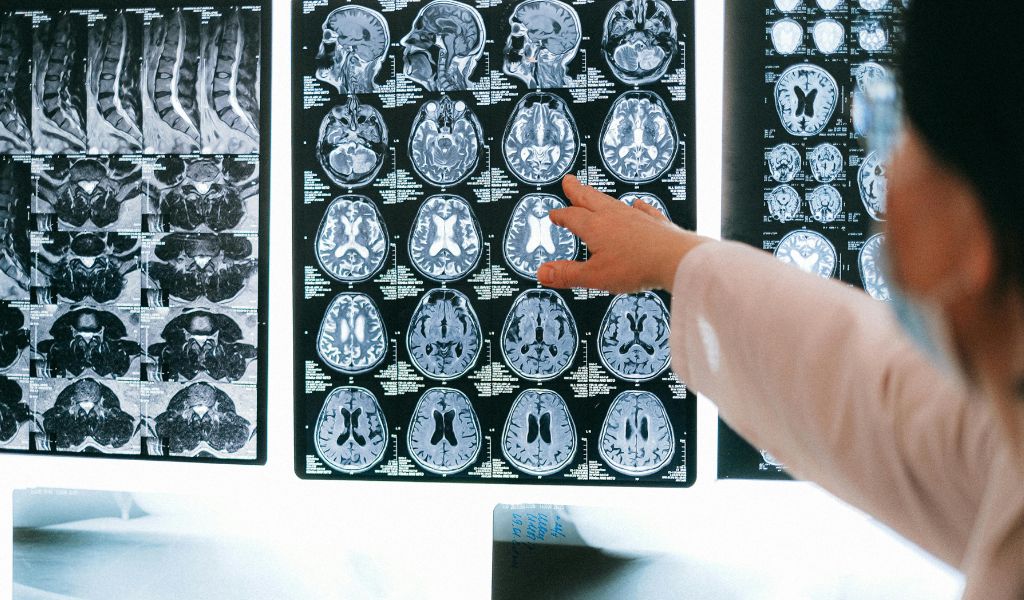Ways Brain Injuries Can Change Everyday Life
11 October 2025
6 Mins Read

- What Is TBI (Traumatic Brain Injury)?
- Types Of Traumatic Brain Injuries
- 1. Concussion
- 2. Contusion
- 3. Diffuse Axonal Injury (DAI)
- 4. Penetrating Brain Injury
- 5. Coup-Contrecoup Injury
- Ways Brain Injuries Can Change Everyday Life
- 1. Cognitive And Memory Impairments
- 2. Emotional And Psychological Changes
- 3. Sensory Sensitivities
- 4. Social And Work Life Problems
- Symptoms And Causes Of Traumatic Brain Injuries
- 1. Mild TBI (Concussion)
- 2. Moderate Or Severe TBI
- What Are The Complications Of Traumatic Brain Injuries?
- What Are The Treatments For TBI?
- 1. Treatment For Mild TBI
- 2. Treatment For Moderate To Severe TBI
- Recovering From The Effects Of Brain Injuries
Brain trauma has the capability to change life in the span of an eye. One moment, life is normal — and then, in the next blink, the ability of a person to think, move, or even feel can be changed forever.
The most severe and complicated among all types of brain injuries is the Traumatic Brain Injury (TBI). They can range from a mild concussion to fatal harm that rearranges a person’s whole life in the future.
What Is TBI (Traumatic Brain Injury)?
A Traumatic Brain Injury (TBI) is a serious enough medical condition that occurs when the brain becomes displaced within the skull as a result of an external force like a blow or penetration object.
This brain displacement can bruise brain tissue, disrupt normal brain function, and affect anything from memory and language to balance and emotional control.
TBIs are different from the other brain conditions like stroke or tumor. These are consequences of some outside trauma, either induced by accident, sports, falls, or beating.
Types Of Traumatic Brain Injuries
There are many kinds of TBIs, depending on how serious the injury is and what part of the brain was harmed. The main types of brain injuries are:
1. Concussion
It is a mild TBI caused by a sudden jarring or blow to the head. Concussions are common can halt normal brain function for a brief period but does not cause change visible on imaging.
2. Contusion
When your brain is bruised from a blow to the head, that is when contusions are formed. They can cause swelling and bleeding of the brain.
3. Diffuse Axonal Injury (DAI)
A DAI or diffuse axonal injury is likely when the brain inside the skull is subjected to a sudden movement and nerve fibers are torn. It may be caused by a car accident or violent shaking and may lead to disability or, in severe instances, lead to coma.
4. Penetrating Brain Injury
This is one of the dangerous effects of head injuries that arise when the skull is penetrated by a sharp object, such as a bullet or metal, and into the brain tissue. The injuries are usually most serious and life-threatening.
5. Coup-Contrecoup Injury
When both the site of impact and the opposite side of the brain are damaged, the brain bounces around inside the skull.
Ways Brain Injuries Can Change Everyday Life
Effects of brain injury also significantly influence the daily life of a person, usually compelling them to modify how they operate in modes that may not be immediately apparent.
1. Cognitive And Memory Impairments
Memory impairment and cognitive impairment are the most frequent effects of brain injury. It is probable that you would suffer from short-term memory issues, which impair your functioning in everyday life.
2. Emotional And Psychological Changes
Head injuries also influence the emotional state of the individual. You may start getting erratic mood swings, become irritable, anxious, or depressed.
Suppose you or your family member has incurred a head injury from an accident on California roads.
In some cases, you hire a seasoned California brain injury lawyer who will be capable of both handling claims for compensation as well as the legal claims and guide you through the healing and emotional process.
3. Sensory Sensitivities
Some of the consequences of brain injury can produce sensorial sensitivities in severely brain damage patients. These are the typical ones: too sensitive to light, sound, or contact. A light source would be blinding, or a noise would produce a headache or disturbance.
4. Social And Work Life Problems
A head injury will typically complicate returning to normal work or social life. The emotional and psychological difficulties can cause an unworkable interpersonal relationship or an inability to work.
Symptoms And Causes Of Traumatic Brain Injuries
The presentation of TBI depends on the severity of the injury as well as the part of the brain involved. They can be acute or develop a few hours or days later.
Let us proceed in a graduated fashion:
1. Mild TBI (Concussion)
A mild TBI affects brain function but temporarily. While the injury is termed “mild,” the symptoms are bothersome.
Common Causes:
- Slipping and falling on the ground (frequent in children and older people)
- Sports injury (football, soccer, boxing, cricket, etc.)
- Minor motor vehicle accidents
- Whiplash or sudden movement
- Head blows
Common Symptoms:
- Headache or feeling of pressure on the head
- Dizziness or loss of balance
- Nausea or vomiting
- Disorientation or confusion
- Ringing in the ears or blurred vision
2. Moderate Or Severe TBI
Severe or moderate TBI consists of a severe blow or penetrating head trauma. The effects of head trauma can lead to brain damage and necessitate immediate care.
Common Causes:
- Severe car or motorcycle crashes
- Falling from great heights
- Physical assault or gunshot wound
- Explosive blasts (most prevalent in warfare)
- Risk sports or work-related injuries
Common Symptoms:
- Increased intracranial pressure (minutes to hours)
- Severe headache that does not subside
- Repeated or persistent vomiting or nausea
- Seizures or convulsions
- Students who are dilated (both or one eye)
What Are The Complications Of Traumatic Brain Injuries?
Complications of TBI range from temporary to lifetime disability. Some occur nearly immediately, whereas other injuries usually take place within a month or a year.
Short-Term Effects of Brain Injuries:
- Brain bleeding or swelling
- Seizures
- Hydrocephalus (Fluid accumulation in your brain)
- Infections in the skull
- Blood clots that may cause strokes
Long-Term Effects of Brain Injuries:
- Chronic headaches or dizziness
- Loss of memory or weak concentration power
- Irregular Sleep Pattern
- Depression, emotional instability, or anxiety
- Change in personality
What Are The Treatments For TBI?
Physicians do not recommend any particular treatment for the effects of brain injuries. The treatment for the consequences of brain injuries varies according to the severity of the injury incurred. With mild TBIs, only rest and observation are needed, but with serious injuries, surgery, medication, and rehabilitation are advised.
1. Treatment For Mild TBI
Treatment of mild TBIs or concussions:
- Rest well: Rest both physically and mentally is required. Rest will make the brain heal, and thus activities like reading, driving, or watching TV must be avoided.
- Medication to manage pain: Painkillers can be consumed over-the-counter in case of headaches with a doctor’s prescription.
- Follow-up observation: After any type of mild brain injury, follow-up observation is required to search for any persisting condition. Doctors recommend follow-up visits to avoid aggravation of symptoms.
- Sequential Return to Daily Activity: Gradual return to activity and refuse sports or hard exercise until cleared by a doctor.
2. Treatment For Moderate To Severe TBI
In mild to serious TBIs, immediate medical attention and emergency treatment must be administered to prevent further injury to the brain.
Emergency Treatment:
- Maintenance of blood supply and oxygenation to allow for brain functioning
- Surgical drainage of clots, repair of skull fractures, or even to relieve pressure on the brain
- Medication is immediately administered to attempt to reduce any form of swelling in your brain and to prevent seizures
Recovering From The Effects Of Brain Injuries
The effect of brain injury doesn’t only occur to the brain — it occurs to the whole person and the people surrounding them.
With loss of memory, mood swings, through to mobility problems and extended recovery periods, the effect can be extreme and long-term.
With knowledge of the effects of brain injuries, you can support survivors with respect, patience, and compassion. Each small success on the path of recovery is an achievement — proof that hope and healing are possible.



















Comments Are Closed For This Article